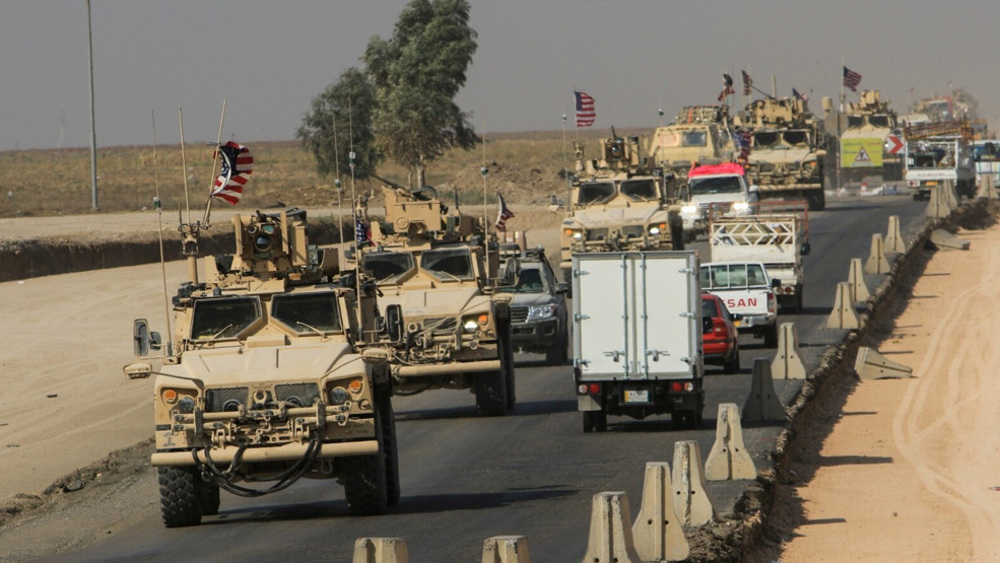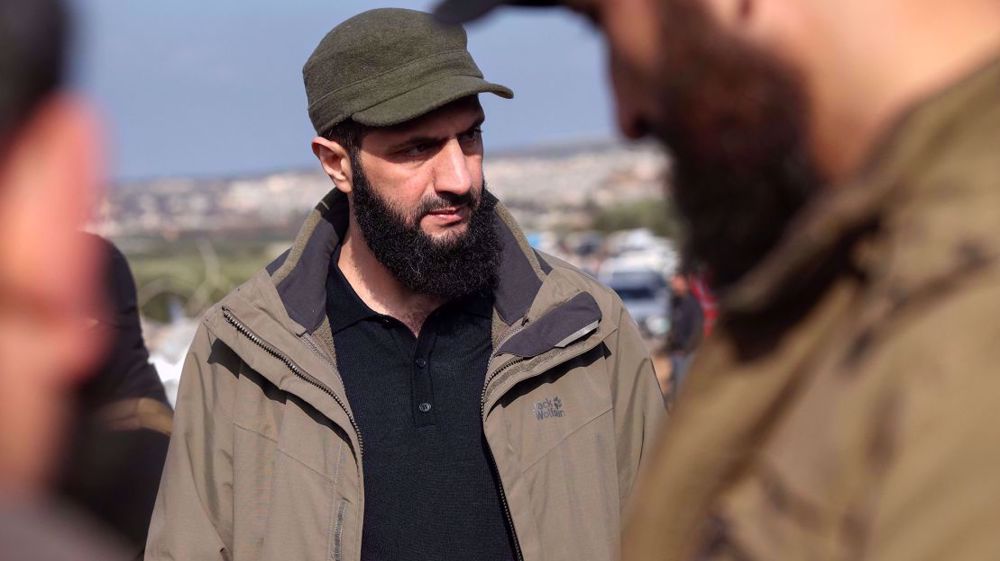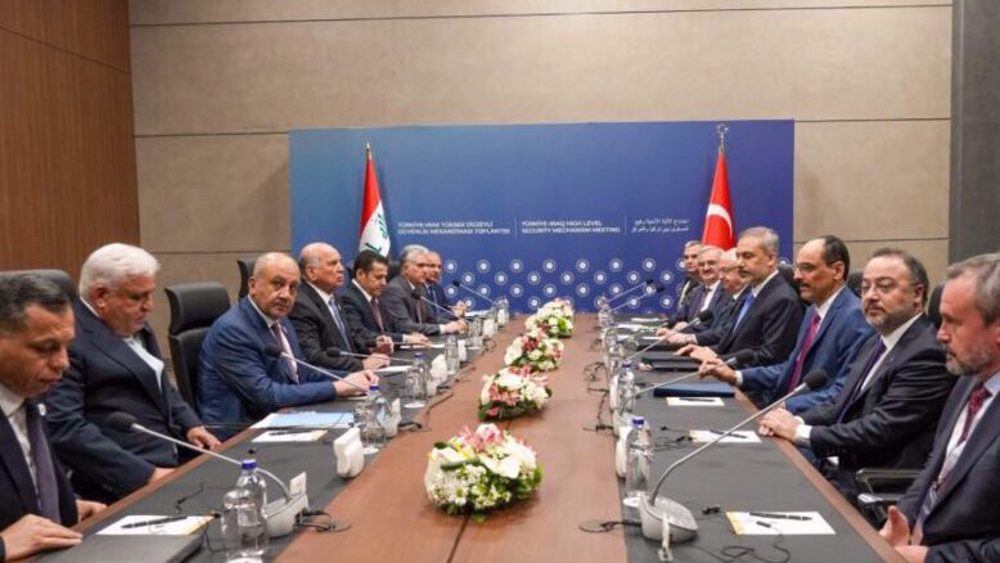Syrian army and Iraqi PMU forces successfully finish joint border operation
The Syrian Arab Army (SAA) and Iraqi Popular Mobilization Units (PMU) have successfully finished a joint operation clearing the Iraq-Syria border area of remaining Daesh terrorists.
The operation successfully cleared 230 kilometers of the two countries’ border region, according to the head of the al-Anbar command of Iraq’s PMU forces Qassim Mosleh.
The PMU official said the operation was done with a high level of coordination between PMU forces, Iraqi border police and Syrian forces.
“Our forces, which headed towards the Iraqi-Syrian border, met with Syrian forces in the agreed upon area,” Mosleh said.
The PMU official added that the Iraqi side of the operation had covered an area spanning between the al-Qaim border crossing and the Akashat border town, north of the al-Tanf border crossing, which is occupied by US forces in Syria.
On the Syrian side of the border, troops cleansed Daesh terrorists from regions stretching from the surrounding areas of the border town of Bukamal to southwest of the city of Palmyra and regions near the al-Tanf border crossing.
The operations had been simultaneously coordinated between the two countries in order to prevent terrorists from fleeing into neighboring border regions.
The successful operation comes as Iraq and Syria had previously agreed to reopen the al-Qaim border crossing.
Both countries originally recaptured the al-Bukamal and al-Qaim border region from Daesh in November 2017 but continued terrorist presence had prevented a reopening of the crossing.
Syria and Iraq have both pledged to step up future security presence on the border in a bid to secure the strategic crossing. Iraq has planned to install thermal surveillance cameras and use aircraft to further reinforce security in the region.
The measures come as Iraq, Syria and Iran have sought to step up mutual economic ties by developing a transnational railway line, along with a road route, linking the three countries.
Iraq and Syria have been expanding political and economic ties with Iran as they seek assistance in the post-war reconstruction of their countries which had large swathes of their territories overrun by foreign-backed terrorist outfits in the past years.
The US, however, has been engaged in a military campaign seeking to counter the emerging regional alliance.
American forces are currently deployed in the Kurdish-controlled regions of Syria, north of the al-Qaim crossing, on the pretext of protecting Kurdish forces in the region and fighting Daesh.
The US has also reinforced its military presence in its al-Tanf garrison, which is situated south of the Iraq-Syria border.
US officials have claimed the region is of "strategic importance" in a push to counter Iran and the formation of “a ground line of communications from Iran through Iraq through Syria to southern Lebanon in support of Lebanese Hezbollah.”
Daesh terrorists have also commonly used US presence in the region as a cover to attack Syrian and allied forces.
Speculations have been made about Washington's direct or indirect support for the terrorist group in the past years.
Numerous accounts have emerged alleging airlifts, weapon airdrops and aerial support for the group, especially as its strength gradually diminished in the region.
Speaking on Friday at a press conference in the French capital of Paris, Iraqi Prime Minister Adel Abdul Mahdi warned of Daesh’s continued presence in the country.
He said any shortcoming in fighting the terrorist group can have severe repercussions for not only the country but also the greater region.
Hezbollah Secretary General Sayyed Hassan Nasrallah on Thursday said the United States and Saudi Arabia created and sponsored Daesh.
"Daesh was created by Washington and tasked with standing against all those who confront U.S.-Israeli plots in the region. This is what American officials have acknowledged themselves,” he said.
Nasrallah said Daesh was created in a bid to provide Pentagon with an excuse to dispatch military forces to Iraq and Syria.
"Daesh has served the US, Israel and other enemies of our nation. It has destroyed several armies and societies in the region. The terror outfit still remains a threat as its ideology persists and its sleeper cells can be resurrected.”

US arms convoys enter Iraqi Ain al-Asad base from Syria: Report

Syria’s self-proclaimed president can be arrested if he visits Baghdad: Iraqi figure

Iraq warns Daesh threats ‘resurging’ in Syria
VIDEO | Press TV's news headlines
VIDEO | Pope Francis dies at 88 after 12 years as Catholic leader
VIDEO | US bombs Yemen’s capital in escalating military campaign
Iran condemns baseless GCC claims on 3 Persian Gulf islands
At least 65 Palestinians killed inside Israeli prisons
VIDEO | US deadly aggression vs Yemen
Iran denies US investors will be present in its trade fair
Israeli forces kill three Palestinians in intensified West Bank raids


















 This makes it easy to access the Press TV website
This makes it easy to access the Press TV website